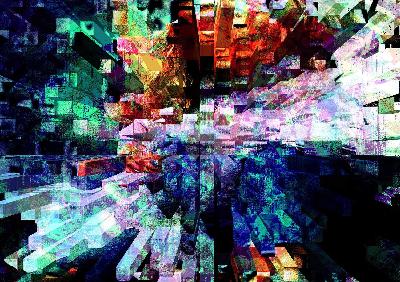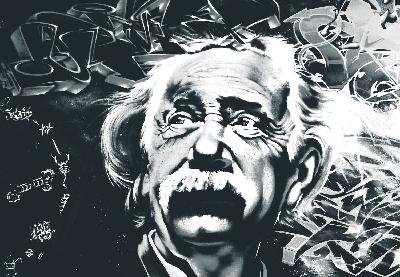 The Utility of Caring
The Utility of Caring
Description
UPDATE - This is now in podcast form! (See music player above). Also, if you're coming back to read this again or linking someone else to it, THERE'S AN ENTIRE NEW SECTION. Its in the podcast, but I've also copied the new text below so if it seems slightly longer and different(er) than you remember, that's why. It's on dogmatism and, frankly, won't win me any friends.
Ah, the life of an intellectual.
The Utility of Caring
I have quite literally no idea where to begin. I think at this point I could start any blog post or podcast with that sentence and it frankly applies universally to all readers or listeners respectively.
I’ve grown up in a fairly fluid political environment. As a kid, politics were only discussed by my grandfather who was decidedly liberal. My parents are – I think – a touch on the conservative side. Well, one is – the other is quite conservative. Siblings? I think you’d find a plurality between myself, my sister, and my brother. As I have in so many disputes, I’m somewhere in the middle of everything.
That was not always the case. Go back on my Facebook timeline far enough and you can see how I “came of age” politically. All of the hallmarks of modern regressive liberal thinking – white privilege (white guilt), shaming of those that support gun rights, empathy in overdrive. I’ve had some very strong words over the years about religion, small government, racism, and taxation. While I don’t think I’ll ever wish to take anything back (after all, I’ve come to my current understanding by fully experiencing my positions), I can certainly look to past comments and interactions as an important light in the darkness.
So I have a whole host of topics to cover and I’m not entirely sure what the best order for covering them is. So why don’t we start with the events that unfolded and some psychological and historical backdrop.
What Brings Us Together
This is being written / recorded in the beginning of October 2017, on the heels of the largest mass shooting in recent US History. A (lone – as we currently know) gunman fired what appeared to be an automatic weapon from the 32nd floor of a casino down toward an outdoor concert being attended by (numbers vary) about 17000 people. As this is on the heels of the event (this writing is less than 24 hours removed from the event), some details are sketchy while even more are sure to come out much, much later. That said, we can reasonably assume a number of casualties involve “crushing” and “stampeding.” The difference, if you’re unaware, is a “crush” does not require anybody to lay on the ground but a crowd of people pushing into a crowd of people that aren’t moving fast enough, ostensibly choking the people caught in-between. A stampede is self-explanatory.
Again, we don’t have any concrete facts about the killer’s motives, but we can reasonably assume that just this sort of venue were hand-picked for maximum carnage. I think it’s unlikely he had a personal connection to the actual place or people involved – it is far more likely he desired something else. What that is, I won’t begin to speculate. But given the close proximity of a very large number of people, we can again reasonably assume that his goal was statistically driven.
Escaping from the psyche and motive of the killer for just a moment, we have to consider the conditions on the ground, specifically for people that survived.
I will attempt to avoid tugging on heart strings (as we will need to be sober for the debate that will follow), but the night of October 1 was probably a whole host of Americans’ introduction to post-traumatic stress disorder. Before I go into that, let’s look at the definition of PTSD to more accurately consider what many people are presently going through. In this case, having an awareness of punctuation is quite instructive, as the “PT” in “PTSD” is actually “P-T” in “P-TSD.” We are not describing how people fair in the real world after suffering some “traumatic stress.” Rather, it is the stress they are now experiencing “post trauma.” It is considered a disorder because of the psychological effects that are not informed by reality. A person exhibiting symptoms of PTSD has a whole host of things that they believe are happening to them that are not – due in no small part to the reality of what they just witnessed. There are multiple “types” of PTSD that we’ll avoid for the sake of any vets that read. The type these victims are grasping is the sudden and violent realization of something they were only slightly aware of in the past – the world is capable of great evil and at some point that evil may affect you directly, though impersonally. In fact, a secondary condition – survivor’s guilt – is related in this very sense. Some great evil rained down from above and killed without impunity. It did not care how good a person you were or how good a person your friend or acquaintance was. The lottery was chosen and your name didn’t come up. You begin to ask why people who had so much to give were and why you, a lowly human being of less quality, were not. You begin to believe that last line.
Everyone is affected by PTSD differently, though nearly everyone responds well to a very carefully regimented practice of talk therapy, or psychotherapy. It’s not enough that a sufferer of PTSD has someone to listen to, they need a trained clinical psychologist to help them overcome the feelings and dissociative effects of having your view of reality so fundamentally challenged.
As social creatures, we have an urge to help our fellow human. I can guarantee you that in times like this, no one running towards the bullets to help people get away bothers to ask if the person they are saving is Republican or Democrat. No one wonders if the person helping them is conservative or liberal, pro- or anti-gun rights. We have an instinct to help each other and, from a purely evolutionary perspective, this has given rise to the most powerful animal to walk the earth.
It is our naturally empathic brain that is largely responsible for the survivability of our species. When times are lean, we have a brain large enough to anticipate it and complex enough to figure out the best way to come out the other side – with the help of others. We offer food and shelter knowing full well that there may come a time when we need it. This is at least a piece of the essence of the human experience and is one of the many images that can move us to tears.
Where Empathy Breaks Down
Empathy has a devastating trick up its sleeve. As categorizing animals, we tend to reduce things to dichotomic categories internally. Can I sit on it or not? Can I hold it or not? Can I break it or not? One of the most classic categories that has helped us survive for millennia on-end is “is this a threat or not?” Threats come in many, many forms and one way it can hack this categorization is in how we classify people. Its one of the many reasons, in my opinion, racism cannot be dealt with by shouting it down but understanding its latent position in our biological makeup. If not raised in an environment with a great deal of diversity, the mind comes to see particularly “different-looking” people as “other.” We are threatened and they are threatening. If you’re a bit on the fence about this, consider how you would describe two groups of people under threat from a fire. Your friends are in one group and the other are all strangers. You will take ownership of “your” friends and try to save them. The other group will have to look elsewhere for help, or you’ll help them if you have the opportunity after rescuing your friends. This is not judging anyone for their choice, but merely calling to light a human tendency – familiarity matters to us and this idea is something we’ll come back to later.
Empathy breaks down when it becomes over-expressed. This, again, is an evolutionary perspective. I referred to this in the last podcast (Red, White, and Black and Blue). There’s a biological tendency to help and a biological tendency to compete within a group – it’s a strange contradiction that we are willing to save the very person we are competing with for something and yet that is exactly how we proceed through life. You wish your opponents less success, but not so much that they fall into ruin.
Similarly, an overabundance of empathy can be emotionally crippling in times of great need. If, moments before some terrible tragedy befell someone, you were overcome with the emotion of the consequences and became crippled with fear (the oft-ignored third evolutionary option – fight, flight, or freeze)? This is not only possible but quite likely. We have plenty of phrases to describe just such a condition. Cold feet. Weak knees. Lack of willpower.
Okay, but what about morally speaking? Does empathy break down there? Let’s discuss what we mean in detail because the morality of empathy is what is going to rationally decide what course of action you deem ethical.
Does Empathy Actually Break Down?
So far as I can tell, most human beings are some form of consequentialist (which is rather advantageous as it’s a subject we are covering this week in ethical theory class!). That is, you’re a consequentialist if you deem an action moral by its consequences, not by its methods. As the saying goes “the ends justify the means.”
I sense trepidation in you. “I’m not a consequentialist! I don’t think the ends justify the means!” No? Do you tell little white lies? Your friend/partner asks you if this dress/shirt makes her/him look fat. In that moment, what do you rationalize? For a large amount of people, the battle that will ensue by telling the truth is not worth the effort. Besides, they will have a psychological
























